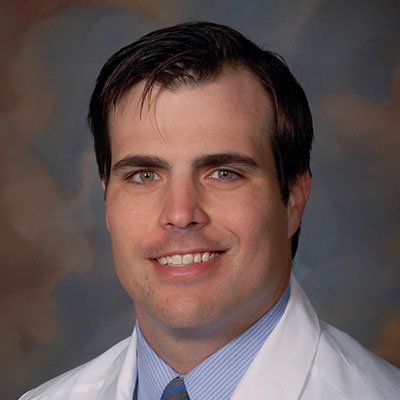
Dr. Hotaling is a fellowship-trained urologist specializing in Male Infertility and Men’s Health.He completed his undergraduate work at Dartmouth, graduating magna cum laude with a double major in history and biophysical chemistry. He then went to Duke for medical school and completed a 6-year residency at the University of Washington. Dr. Hotaling elected to pursue an additional year of training under Dr. Craig Niederberger at the University of Illinois at Chicago focusing on Male Infertility and Men’s Health. Here, he had extensive training in micro-surgery, including Testicular Sperm Extractions (TESE), Micro-dissection Testicular Sperm Extraction (microTESE), and Vasectomy Reversal. He is also one of the only Men’s Health and Infertility experts in the United States to have undergone additional training to become a Fellow of European College of Sexual Medicine (FECSM) as well as being a board certified urologist.
| B.A. | Dartmouth College (2002) |
| M.D. | Duke University School of Medicine (2006) |
| Intern | University of Washington School of Medicine (2007) |
| M.S. | University of Washington School of Public Health (2010) |
| Resident | University of Washington School of Medicine (2012) |
| Fellow | University of Illinois at Chicago School of Medicine, Department of Urology (2013) |
| AUA Early career investigator showcase presentation selected for podium | 2017 |
| American Urological Association Prize paper podium presentation for pediatric section | 2016 |
| Associate (speciality) editor of Fertility & Sterility | 2016 |
| ASA Poster selected as Best Poster: “Lower Semen Quality as a Marker For Increased Familial Mortality” | 2015 |
| Fertility & Sterility Reviewer of the Year Award | 2015 |
| Western Section of AUA Best Poster of meeting | 2015 |
| Fertility and Sterility Reviewer of the Year Award | 2014 |
| AUA Poster selected as Best Poster in Session: "The Male Orgasm" | 2014 |
| AUA Poster selected as Best Poster In Session: "Validity and Reliability of a Smartphone Application of the Assessment of Penile Deformity in Peyronie's Disease. Award of $5,000 from University of Illinois Enterprise Works for Sperm Dx Inc." | 2013 |
| Fertility & Sterility Reviewer of the Year Award | 2013 |
| SMRU Travelling Scholar $1000 | 2011 |
| Hirschler Prize for Innovative Urologic Research: $4000 for: “UWPNS360” | 2011 |
| Warren Chapman Resident Research Award. University of Washington Department of Urology | 2010 |
| Northwest Institute of Genetic Medicine (NWIGM) Resource Grant for: “A Study of The Genetic Predictors of Erectile Dysfunction”.University of Washington Department of Urology | 2010 |
| AUA Poster Selected as Best Poster in Session: “Isolated Teratospermia does not appear to predict clinical pregnancy following in vitro fertilization or in vitro-fertilization with intracytoplasmic sperm injection: A systematic review and meta-analysis”. University of Washington Department of Urology | 2010 |
| AUA Annual Meeting Abstract selected for Meet the Press: “Long-term use of supplemental vitamin C, vitamin D and vitamin E does not reduce the risk of urothelial cell carcinoma of the bladder in the VITamins and Lifestyle study. University of Washington Department of Urology” | 2010 |
| Summer Institute in Statistical Genetics Training Scholarship: $2400. University of Washington Department of Urology | 2010 |
| Hirschler Prize for Innovative Urologic Research: $4000 for: “Sperm Cryopreservation Oncological Databank”. University of Washington Department of Urology | 2009 |
| International Volunteers in Urology Scholarship: $2500: to support travel to Uganda to work with Dr. Stephen Watya. University of Washington Department of Urology | 2009 |
| Hirschler Prize for Innovative Urologic Research: $2000 for: “Development of a prospective database to standardize and track trauma outcomes”. University of Washington Department of Urology | 2009 |
| American Urologic Association Western Section Resident Scholarship. University of Washington Department of Urology | 2008 |